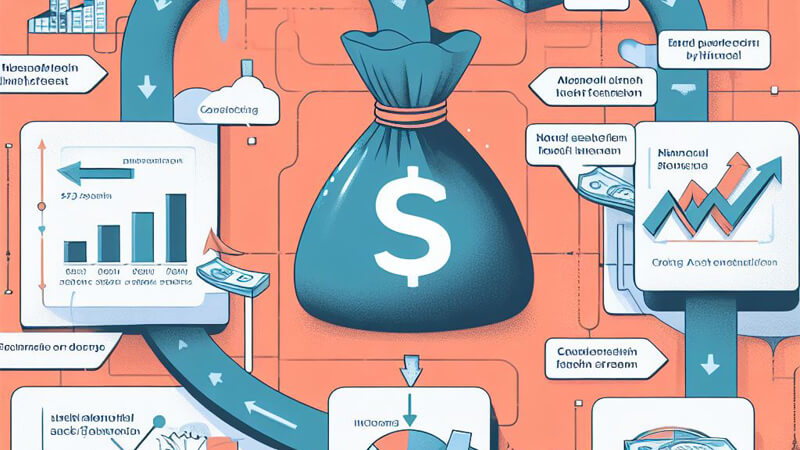Introduction
An uneven cash flow stream refers to a series of cash flows or financial transactions that occur at irregular or uneven intervals. In contrast to a regular cash flow stream, where cash flows occur at consistent intervals (e.g., monthly, quarterly, or annually), uneven cash flows can have varying time gaps between transactions.

Uneven cash flows are typical in many real-life financial and business scenarios. They can result from a variety of factors, including:
- Business Operations: Companies often experience varying cash flows due to seasonality in their sales or expenses. For example, a retail business might have higher cash inflows during the holiday season but lower during other times of the year.
- Project Finance: In project financing, cash flows can be uneven because significant investments and returns may occur irregularly throughout the project’s lifespan.
- Investments: An individual’s or company’s investments may generate uneven cash flows. For instance, rental properties can produce varying rental income each month.
- Loan Repayments: When individuals or businesses make loan repayments, they might follow a schedule with uneven payments, such as balloon payments or irregular additional payments.
- Startups and New Ventures: New businesses often experience uneven cash flows as they navigate through initial investments, revenue generation, and operational expenses.
Understanding and managing uneven cash flow streams is crucial for financial planning and decision-making. It’s essential to analyze and project these cash flows accurately to ensure a company’s liquidity, manage debts, and make informed investment choices. Financial tools like discounted cash flow (DCF) analysis or net present value (NPV) calculations are often used to account for the time value of money and assess the desirability of investments or projects with uneven cash flows.
In summary, an uneven cash flow stream represents cash flows that occur at irregular intervals and can be caused by various factors, including the nature of a business, investments, or loan repayment schedules. Proper financial analysis and planning are essential to manage uneven cash flows and make sound financial decisions effectively.

